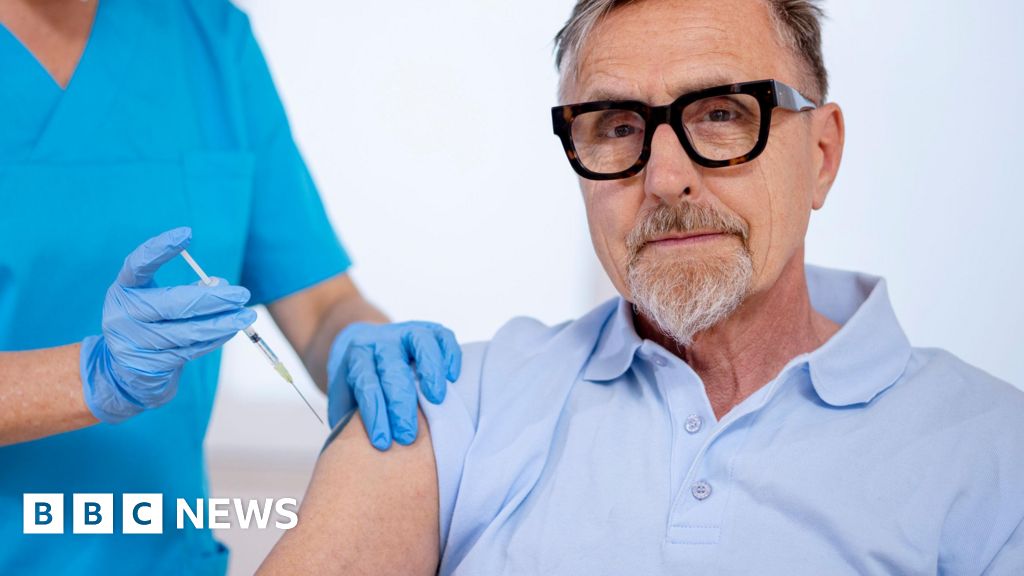Fitness
Moderna’s two-in-one flu and Covid vaccine passes advanced trial – BBC News

Image source, Getty Images
- Author, Michelle Roberts
- Role, Digital health editor, BBC News
Drug company Moderna says its combined flu and Covid vaccine, which targets the two diseases in a single shot, has passed a vital part of final-stage scientific checks.
The phase-three trial shows the vaccine arms the body with protective antibodies.
And it does so as effectively as separate flu and Covid shots, results suggest.
Fewer injections would be more convenient and simpler, Moderna says.
Chief executive Stephane Bancel told BBC News he hoped the messenger ribonucleic acid (mRNA) vaccine could be made widely available in 2026 – or perhaps, 2025.
“We are very delighted about the results, because it’s the first time in the world that a company is able to show positive phase-three results combining in a single dose flu and Covid vaccine,” he said.
“You get one dose, one needle,” which meant “ease and peace of mind for the consumer”.
Competitors Pfizer and BioNTech are testing a similar two-in-one mRNA vaccine against flu and Covid.
In the continuing Moderna trial, the mRNA-1083 jab produced a higher immune response than the licensed comparator vaccines.
It matched or bettered currently approved flu jabs, including high-dose ones designed for older people.
And it was better than Moderna’s existing Covid booster, Spikevax, at making the body produce disease-fighting antibodies – probably because it had been designed to fight more recent variants circulating around the world, Mr Bancel told BBC News in an interview.
Older people
The results are from 8,000 volunteers – all aged over 50 and half over 64.
Moderna said it had focused on older people because they were most likely to continue to be offered Covid vaccines.
But it plans ultimately to offer the new jab to younger people also.
Any side effects were generally mild – a bit of soreness where the needle went into the skin and some tiredness – as with regular vaccines.
The company plans to present the findings at a medical conference, as well as submit them for publication.
It is also developing an mRNA vaccine against a disease called cytomegalovirus, for which it hopes to have late-stage trial results this autumn.
Currently, there is nothing to protect pregnant women and their unborn babies against CMV.


)






